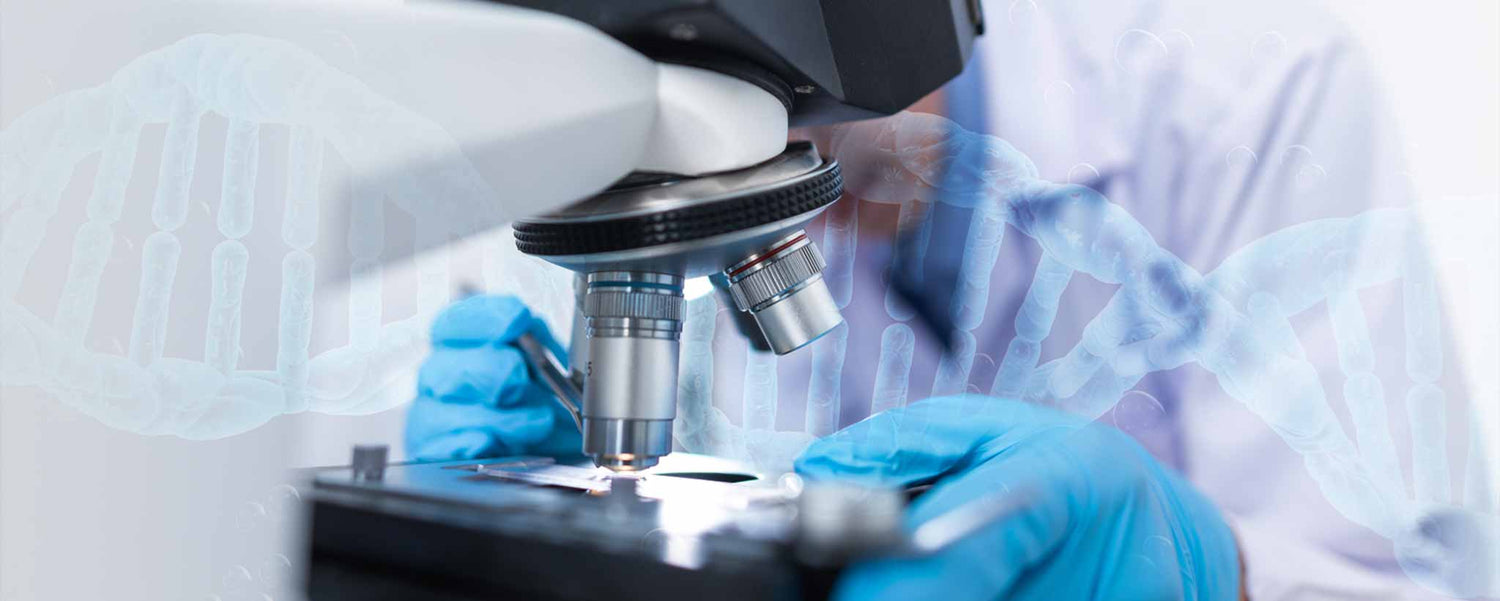Publish 4 March 2021
By modifying DNA, CRISPR is giving regenerative medicine a new shot in the arm. Human genetically modified organisms may combat diseases.
You Want To Get Up, Not Break Down

How long do you want to live? Natural body regeneration slows down by age 30. At age 45, you are breaking down. By age 65, cholesterol and blood pressure are at an all-time high, while you’re falling down and struggling to get up. This is why longevity enthusiasts strive to lower their phenotypic age with diet and exercise. Now science is opening a new path to longer and healthier living.
By modifying the DNA, CRISPR is giving regenerative medicine a new shot in the arm. According to LongevityTechnology, “Advances in regenerative medicine are quickly coming closer to allowing us to replace all our old cells, tissues, and organs with pristine new ones.” [1]
Prospects For Regenerative Medicine
CRISPR/Cas9 has revolutionized biomedical research by precisely cutting DNA and then letting the natural DNA repair processes take over. [2] Human genetic manipulation is controversial. The world can’t wrap its head around the ethics of ordering a child with upgrade options in the same way you order a new desktop computer.
In November 2018, a scientist in China, He Jiankui, reported that he used CRISPR-edited genes to engineer the world’s first human babies: a pair of twin girls. They reportedly have a measure of resistance to HIV. [3] He was sentenced to three years in jail for this revelation.
CRISPR Lexicon [2]
- CRISPR: Clustered Regularly Interspaced Short Palindromic Repeats of genetic information that some bacterial species use as a defense system against viruses. A group of scientists, including co-founder Nobel Laureate Dr. Emmanuelle Charpentier, discovered how to use this system as a gene-editing tool (Jinek, et al. Science 2012)
- Cas9: A CRISPR-associated (Cas) endonuclease, or enzyme, that acts as “molecular scissors” to cut DNA at a location specified by a guide RNA (gRNA).
- Deoxyribonucleic acid (DNA): The molecule that acts as genetic material in most organisms and contains the “instructions for life.”
- Ribonucleic acid (RNA): A molecule related to DNA that cells use for several purposes, including transporting and reading the DNA “instructions.” RNA also acts as genetic material for a few viruses, like SARS-CoV2.
- Guide RNA (gRNA): A type of RNA molecule that binds and directs the Cas9 enzyme to cut the DNA at a specific location.
CRISPR is Eradicating Disease
CRISPR Therapeutics focuses on using DNA or RNA to cure disease and extend your lifespan. [2] Scientists can use CRISPR to snip out and “silence” undesirable genes. Going further, they can harness repair enzymes to substitute them with the desired genes.
CRISPR Therapeutics focuses on developing transformative gene-based medicines for serious human diseases.

This scientific technology has the largest number of participants of any clinical study on the planet. The coronavirus infects by injecting its RNA into the host cells. To combat this, Pfizer-BioNTech and Moderna used CRISPR to develop mRNA (messenger RNA) vaccines. [4] Unlike traditional vaccines, these do not contain the virus.
There you have it. It took one pandemic for much of the world to get its first shot of genetic therapeutics.
Dr. William Schaffner is a professor in the Division of Infectious Diseases at the Vanderbilt University School of Medicine. Dr. Ruth Karron is a leading vaccine expert and professor of international health at the Johns Hopkins Bloomberg School of Public Health. They discussed the COVID-19 vaccine with CNN writer Scottie Andrew.
“The mRNA for the vaccine never enters a cell’s nucleus, which houses DNA,” Karron said. “It does its work in the cytoplasm, the fluid within a cell. The mRNA doesn’t stick around in the body, either. It dissolves once it’s sent a message to cells and exits your body,” Schaffner said. [5]
Bryn Boslett, MD, is an infectious disease expert who is leading the vaccination effort at UC San Francisco. Her comments mirror those of Schaffner and Karron. “I’m not at all worried about there being any kind of damage to a person’s DNA from these vaccines,” said Boslett. [6]
Booster Shots
🧬 The researchers can’t say how long the immunity given by the current vaccines will last. As the virus mutates, individuals may require additional booster shots. Moderna expects the original two-dose regimen to provide some protection against new variants. It is testing an additional booster shot to investigate more neutralizing antibody titers that protect against emerging variants. [7]
There is not enough data to indicate whether vaccinated asymptomatic people can spread the virus. [6] So it may be advisable to continue social distancing and wearing masks after your COVID-19 vaccination.
Wiping out COVID-19, cancer, sickle-cell anemia, Huntington’s disease, diabetes, and more would extend the lives of millions of people. [3-10] Many doctors are absolutely giddy with the possibilities. After successes in mice, Intellia Therapeutics is performing human clinical trials with CRISPR to combat amyloidosis. [11]
Using CRISPR, scientists can make stem cells “invisible” to the immune system. This could end the need for immunosuppressive drugs prescribed for organ transplant rejection. [12]
Try to keep up, this stuff is happening now! A team from the Perelman School of Medicine at the University of Pennsylvania and Penn’s Abramson Cancer Center deleted three genes from cancer patients using CRISPR/Cas9 editing. Cells were reprogrammed to express a synthetic T cell receptor that could seek out, find, and destroy cancerous tumors. Another edit removed PD-1, the so-called programmed cell death protein 1.
Following six weeks of culturing and cell editing, they were put back into three patients with cancer unresponsive to other treatments. All were alive at the 9-month follow-up. [13,14]
Long-Living GMO Humans
Genetically modified bug-resistant crops have less spoilage and can have a longer shelf life than non-GMO fruits and vegetables. [15] By eradicating senescent cells, CRISPR offers the potential for lengthening human lifespans. [16,17] At least one martyr has brought to birth genetically modified children. [18]
The next frontier is not only saving sick patients. It includes extending the lives of healthy people. The Pfizer-BioNTech and Moderna mRNA vaccines instruct your immune system how to respond to spike proteins like the coronavirus. Then your body eliminates the mRNA.
The CRISPR technology is saving millions of lives from the COVID-19 pandemic. In the future, DNA editing by CRISPR could make us genetically modified organisms (GMO) and protect us against other deadly diseases. Are you ready for the next shot in the arm for a longer life?
Review by Kaustubh Shukla, Ph.D., a microbiologist who has worked on DNA repair and alternative DNA structures.
FAQ: A genetically modified population
What is the prospect for regenerative medicine?
By modifying the DNA, CRISPR is giving regenerative medicine a new shot in the arm. According to LongevityTechnology, “Advances in regenerative medicine are quickly coming closer to allowing us to replace all our old cells, tissues, and organs with pristine new ones.”
Have there been any successes in disease eradication using CRISPR?
CRISPR Therapeutics focuses on using DNA or RNA to cure disease and extend your lifespan. Using CRISPR, scientists can make stem cells “invisible” to the immune system. This could end the need for immunosuppressive drugs prescribed for organ transplant rejection.
Does CRISPR alter a person’s DNA?
It does its work in the cytoplasm, the fluid within a cell. The mRNA doesn’t stick around in the body, either. It dissolves once it’s sent a message to cells and exits your body.
What are the prospects for CRISPR?
The CRISPR technology has saved millions of lives from the COVID-19 pandemic. The next frontier is not only saving sick patients. It includes extending the lives of healthy people.







